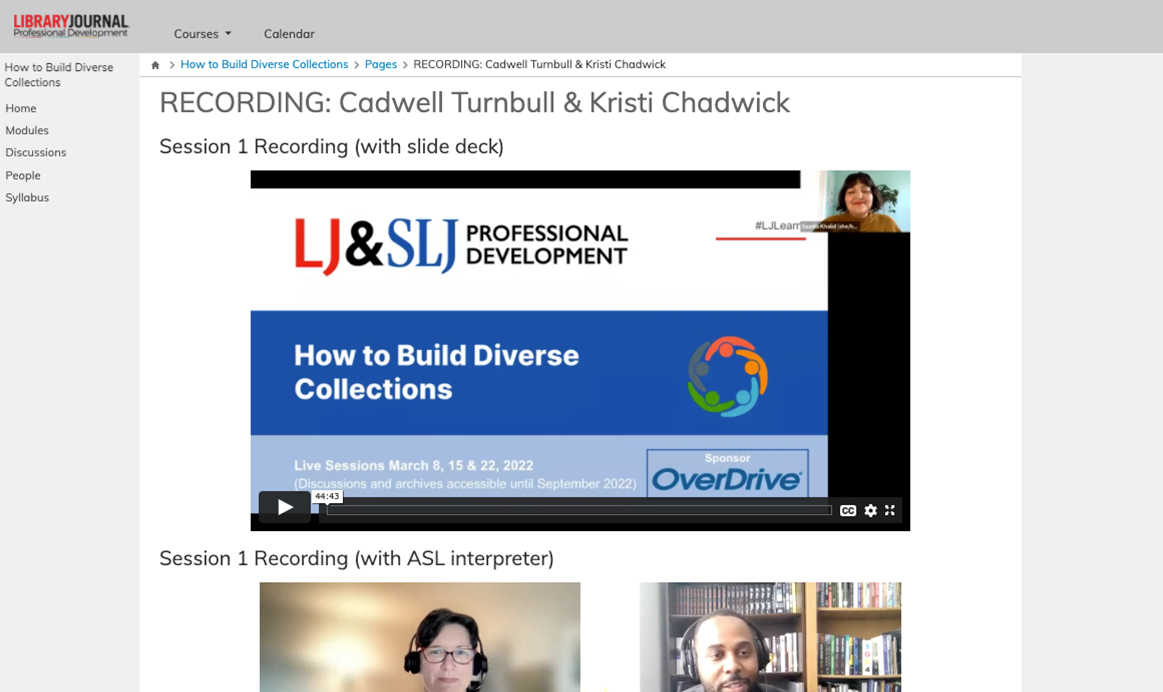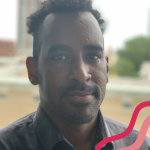How to Apply Restorative Justice in Your Library

Create safer libraries while centering equity, relationships, and accountability.
Course Description
Guest speaker sessions via Zoom:
Tuesdays, April 30 and May 14 from 2:00 to 4:00 pm ET (recordings available)
Restorative practices are proactive practices that help create a culture of relationships and accountability before any harm is committed. Restorative justice is an approach to addressing harm and conflict that focuses on healing, repairing relationships, and promoting accountability. Rather than being punitive, restorative justice seeks to involve the community in the resolution process and can provide a model for transparent dialogue and healing between everyone involved in an incident.
This half-day online course will teach you the foundations of restorative practices and justice from a library perspective. You will learn about peace circles, how to initiate communication about an incident, and how to facilitate ongoing relationship repair and accountability from those who have caused harm.
This course is designed and structured over multiple weeks to teach you the fundamentals of restorative practices and justice, give you a chance to apply it in your library, and reconvene in class to debrief and continue learning from expert speakers. Join us for approximately 6 hours of interactive, expert-led sessions, spread across two separate days, and learn the tools you need to implement restorative practices in your library.
The live sessions run on Tuesdays, April 30 and May 14, 2024 from 2:00-4:00 pm ET (recorded for on-demand viewing). Don’t miss this opportunity!
When you sign up early, you’ll have immediate access to our Early Access On Demand Resources—a series of webinars from Library Journal and School Library Journal contributors along with rich, supporting materials in the form of readings, activities, and videos—to explore at your own pace.
Learning Outcomes
After you leave this course, you should have the ability to:
-
Understand the foundations of restorative justice
-
Understand how restorative justice applies to libraries
-
Create a restorative culture in your library
-
Understand community building and norm setting circles
-
Initiate restorative conversations
-
Have a working knowledge of peace circles
Who should take this course
This course is for librarians of all levels who have a new or emerging understanding of restorative justice and restorative practices.
Expected time commitment:
If you attend or watch the recordings of all live sessions, you'll spend approximately 4 hours on this course. You'll earn 4 hours of PD credit and a Library Journal certificate of completion.
Live sessions are also available on demand for six months
Can’t make a live session? All guest speaker sessions are recorded and available on demand for six months following the initial broadcast.
Certificate of completion provided
4 professional development credit hours
For support with online courses, please contact libraryjournal@edmaker.co
Accessibility
All guest speaker sessions feature live captioning and are made available on demand after the initial broadcast. Please email libraryjournal@edmaker.co upon registration if you require any special accommodations and we will make our best efforts to facilitate them.
Course Advisor
|
|
Stephen Jackson, (he, him) Founder, Global CommUnity Associates |
Group Rates
Have a team attend and increase your impact!
Discounted registration fees are available for groups of 3 or more.
Send us a request for a quote.
By registering for this event you confirm that you have read and agree to our Code of Conduct.
For support with online courses, please contact libraryjournal@edmaker.co.
Tuesday, April 30, 2024
Session 1 | 2:00-3:00 pm ET
Foundations of Restorative Practices for Libraries
What are restorative justice and restorative practices, and how are they relevant to libraries? This opening session will cover the foundations of restorative practices and why they matter to libraries. You will learn the basic principles of restorative practices and the importance of building relationships with both colleagues and patrons. This session will also discuss how to use restorative practices as a guide for creating or revising library policies and procedures.
Speaker:
|
|
Stephen Jackson, (he, him) Founder, Global CommUnity Associates |
Break | 3:00-3:15 pm ET
Session 2 | 3:15-4:15 pm ET
Creating a Restorative Culture and Understanding Conflict
Where does conflict come from and how can we respond to it? And how can principles of restorative justice help us create a restorative culture that prioritizes relationships and includes a healthy foundation to respond to conflict? This session will discuss restorative tools to build and maintain a restorative culture and community among colleagues and patrons.
Speaker:
|
|
Jerel Ezell, PhD, MPH, Assistant Professor, Community Health Sciences, Director, Center for Cultural Humility at School of Public Health, University of California, Berkeley |
Online Classroom Explanation | 4:15-4:30 pm ET
An introduction to the community discussion board and an overview of what to keep in mind between now and our next live sessions.
Tuesday, May 14, 2024
Week 1 Debrief | 2:00-2:15 pm ET
This time will provide the opportunity for a moderated, whole-class debrief of what you’ve tried over the last two weeks. You’ll have the chance to share what has gone well, where you still need support, and what questions you have.
Session 3 | 2:15-3:15 pm ET
Restorative Practices in Action
What are your options once harm or conflict occurs? How does restorative justice work in practice? This session will discuss restorative tools and practices to use in response to harm. You will learn how to initiate restorative conversations as well as the basic tenets of restorative peace circles that help communities respond to conflict as a group.
Speaker:
|
|
Jerel Ezell, PhD, MPH, Assistant Professor, Community Health Sciences, Director, Center for Cultural Humility at School of Public Health, University of California, Berkeley |
Break | 3:15-3:30 pm ET
Session 3 | 3:30-4:30 pm ET
Restorative Practices in Action, Continued
Half-Day Online Course Format
Inspiring Live Guest Speakers

Live session with Andrea Blackman and Tasneem Ansariyah Grace |
Live Guest Speakers
|
Online Course Preview
A preview of how we build your library skills and bring inspiration to your projects with our online learning experience.
Online Course Features

Recordings of guest speakers |
Recordings Available After The Live Session
|

Early Access On Demand Resources |
Early Access and Ongoing Resources To Support Learning
|
ALREADY A SUBSCRIBER? LOG IN
We are currently offering this content for free. Sign up now to activate your personal profile, where you can save articles for future viewing







